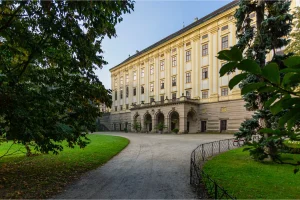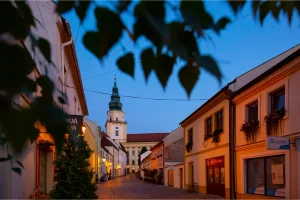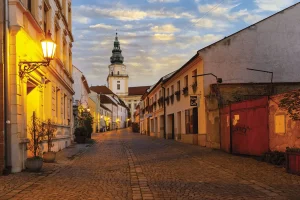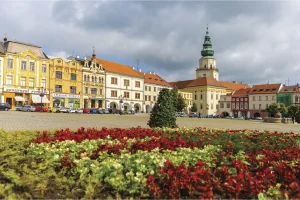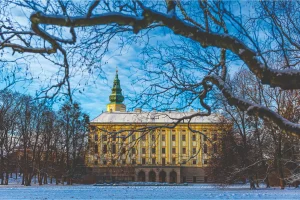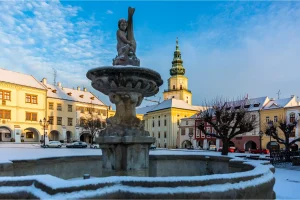The original building on the site of today’s Chateau was built in the 15th century and has undergone several reconstructions since then. The summer residence of bishops and archbishops of Olomouc acquired its present-day form in the second half of the 17th century under bishop Karl II von Liechtenstein‑Kastelkorn. Authors of the present-day form of the Chateau are architects Filiberto Lucchese and Giovanni Pietro Tencalla. Nevertheless, many technical details were designed by the bishop himself. The Baroque, almost square, structure apparently included the original Gothic and Renaissance building. Apart from the Sala Terrena, the rooms on the ground floor and in the basement were economic facilities. The first and second floors were dedicated to representative halls. And the space under the roof was used for staff accommodation. In the mid‑18th century, the first and second floors were destroyed by fire. The following reconstruction took twenty years, and the building acquired a late Baroque to Rococo appearance. Today, the Archibishop’s Chateau is particularly attractive for tourists, thanks to the Chateau Gallery, which, among other things, owns Titian’s last mythological painting, “The Flaying of Marsyas”. Tourists are also attracted by the Chateau Tower with 206 steps and a breath‑taking view of the surrounding area at its top. Another enticement, not only for the tourists, are the unique premises of Sala Terrena and other beautiful chateau halls, which have been vastly used by both Czech and foreign filmmakers.

